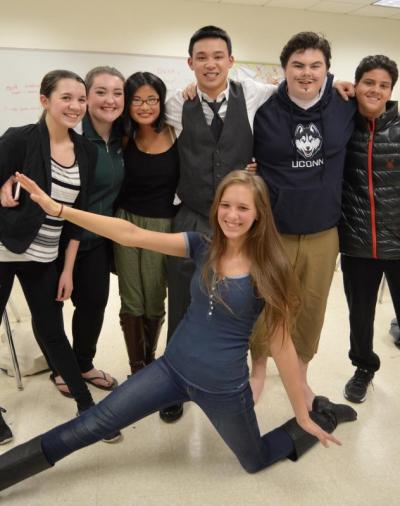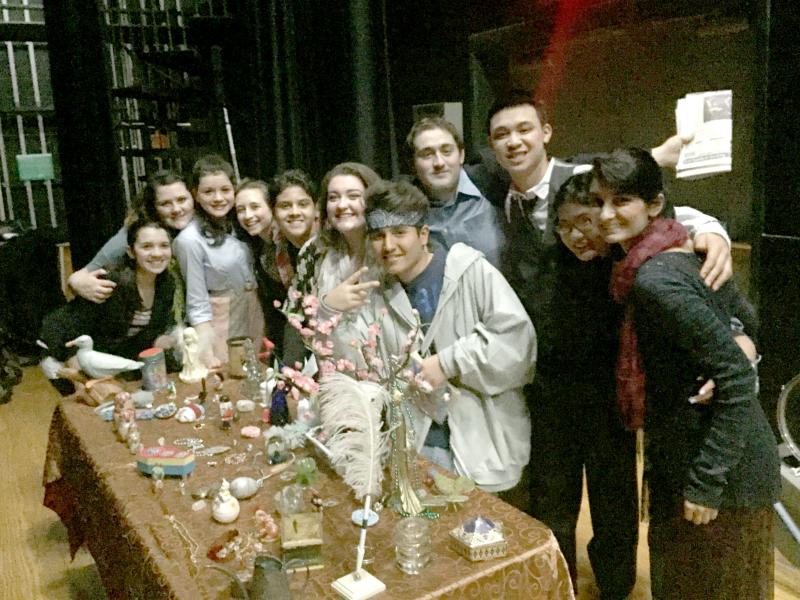Theater Arts students perform their final exam
While most final exams bring to mind groups of kids working their way through test booklets in total silence, the students in Dartmouth High’s Theater Arts course will be graded on how well they can project their voices.
On Thursday, Jan. 14, Meg Rogers’ Theater Arts and Advanced Theater Arts students performed in front of their fellow classmates and parents during an after school show titled “Final Scene Night.”
Rogers’ students start the course in September with monologues, one-act plays and some Shakespeare. The class is composed of students from all four grade levels and varying levels of acting experience.
Once November rolls around, their efforts are directed toward the big end-of-semester production. The majority of the class' final exam grade derives from the show. The rest of the grade stems from a written reflection paper during finals time, which is Jan. 21 and 22.
During the show, the students are graded on basic techniques covered throughout the semester: projecting their voices, facing out toward the audience, adopting to their characters, memorizing the script and remembering to keep going even if they forget a line.
“I have a slew of one-act play books. Depending on the kids in the class, I pick scenes that play to their strengths,” said Rogers. “I want to give them something that will challenge them but not be overwhelming.”
The students were divided into four groups for Final Scene Night. Each group performed a sketch, and the students were responsible for every element of the production, including costuming, sets, lighting and make-up.
Kempton Campbell, 14, who performed a comedic sketch during the show, has experience in the SouthCoast Children’s Theater and the Dartmouth Middle School Drama Club. More recently, he performed in the Dartmouth High Theatre Company’s production of "Babes in Toyland."
“There are some things I’ve learned that are new to me. We learned how to get into our characters more and the whole process of making a production,” said Campbell. “We would practice every day, except for the weekends. In class, we would go over our lines, blocking, everything.”
As if final exam in front of an audience weren't nerve-racking enough, disaster struck early in the second scene when the light board malfunctioned.
“It just shut down. It runs on a computer upstairs, and it turned off and turned off the lights,” said Rogers.
She said she was proud of her students for acting so quickly to diffuse the situation. The curtains were drawn, a spot light was directed at the guitarist performing songs between sketches and the light board situation was rectified.
“They restarted the scene from the beginning and performed it flawlessly,” said Rogers. “I was proud that those three [actors] kept going. They didn’t get freaked out.”
Valerie Paynton, who was part of the group affected by the lighting malfunction, said that acting is harder than it looks.
“When I first started the class and did my first monologue, I found out that my range of emotions wasn’t that big,” said Paynton. “As the semester passed, I learned method acting. There’s a lot behind acting and getting the different emotions that you want. I didn’t realize that before.”
As to the pressure of putting on a show for a grade, many said they didn’t even think about it while they were on stage.
“It’s not so much about the grade,” said junior Anthony Lee, 17. “It’s about showing people what I love to do: entertain.”















